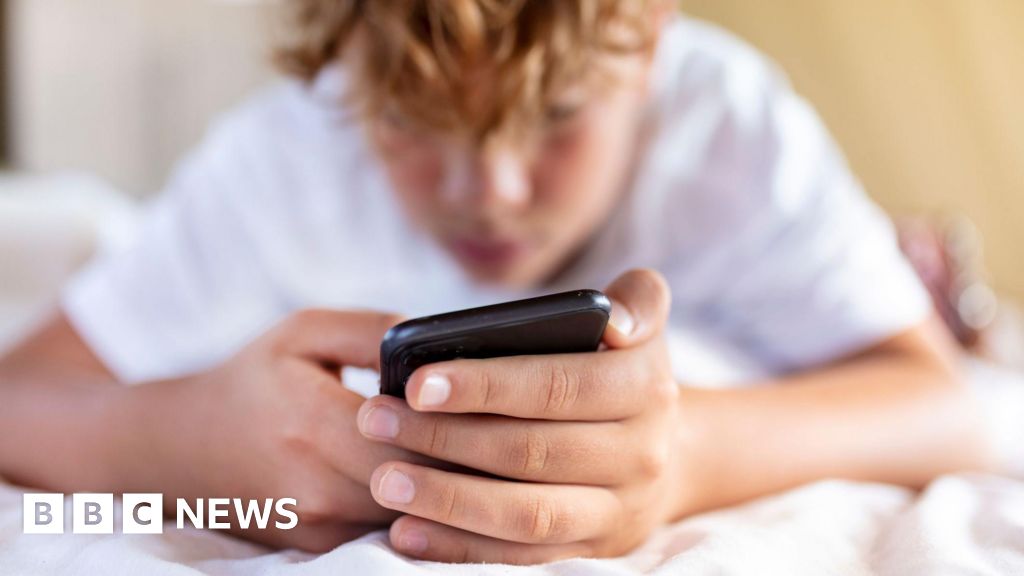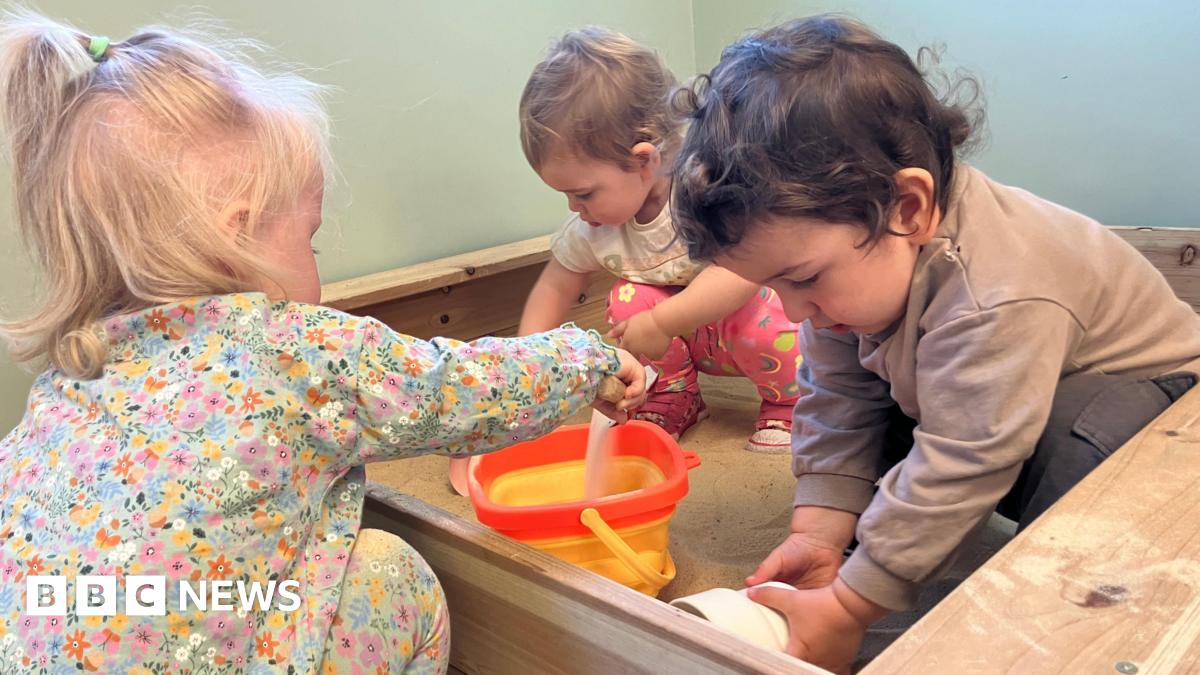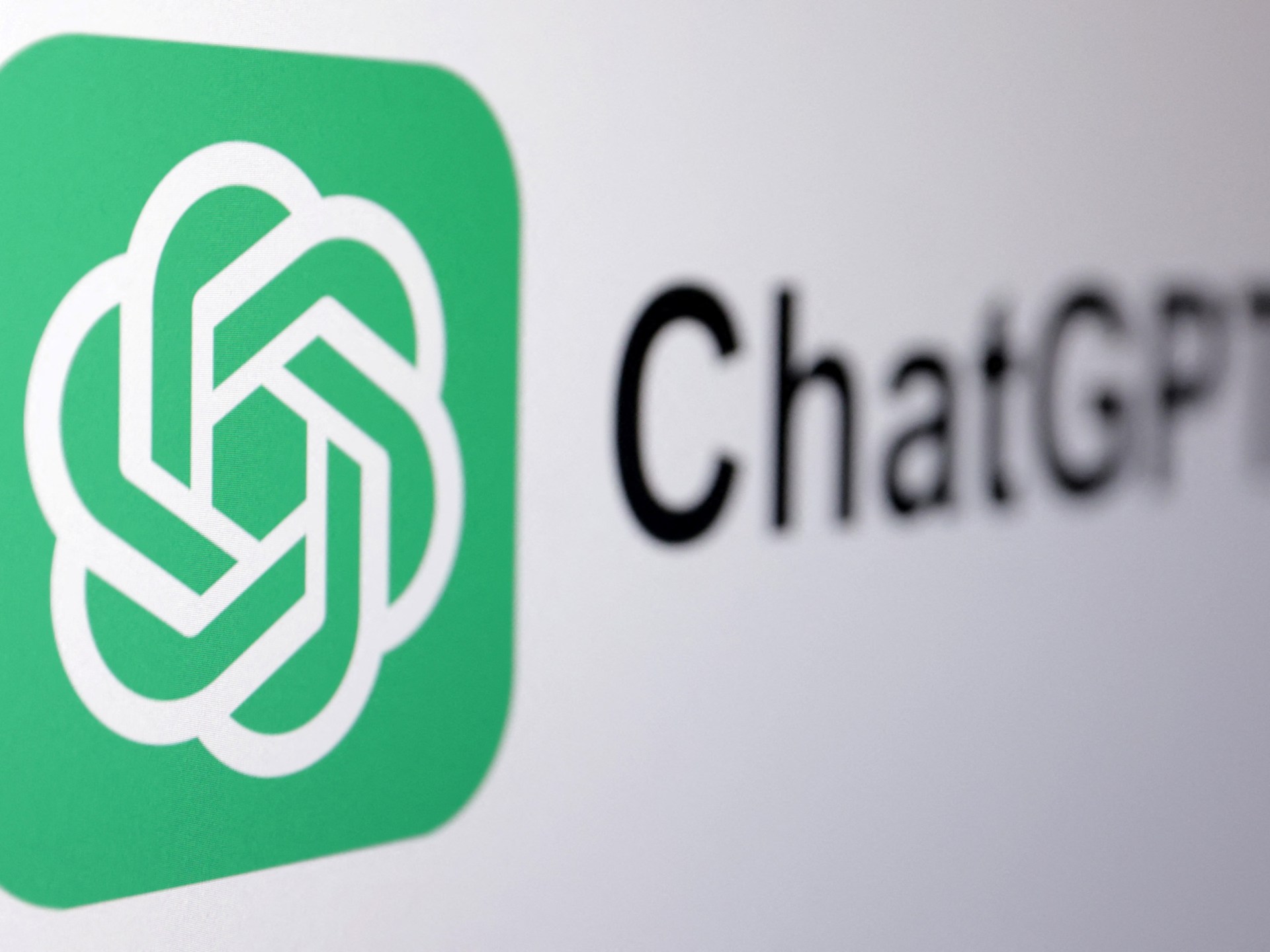Could ChatGPT Detect Children's Acute Distress? A Parent's Guide

Welcome to your ultimate source for breaking news, trending updates, and in-depth stories from around the world. Whether it's politics, technology, entertainment, sports, or lifestyle, we bring you real-time updates that keep you informed and ahead of the curve.
Our team works tirelessly to ensure you never miss a moment. From the latest developments in global events to the most talked-about topics on social media, our news platform is designed to deliver accurate and timely information, all in one place.
Stay in the know and join thousands of readers who trust us for reliable, up-to-date content. Explore our expertly curated articles and dive deeper into the stories that matter to you. Visit Best Website now and be part of the conversation. Don't miss out on the headlines that shape our world!
Table of Contents
Could ChatGPT Detect Children's Acute Distress? A Parent's Guide
Is technology the answer to recognizing childhood distress? As parents, we constantly worry about our children's well-being. From minor scrapes to more serious emotional distress, knowing when and how to respond is crucial. Could AI, specifically large language models like ChatGPT, offer an unexpected helping hand in detecting children's acute distress? The answer is complex, and this guide explores the possibilities and limitations.
While ChatGPT and similar AI tools aren't replacements for professional medical advice or a parent's intuition, they offer intriguing possibilities for early detection and support. This article aims to help parents understand how AI might assist and what its limitations are in identifying children's acute distress.
Understanding the Challenges of Detecting Children's Distress
Children don't always express their feelings clearly. A child experiencing acute distress might exhibit various signs, including:
- Behavioral Changes: Increased aggression, withdrawal, changes in sleep patterns, or unusual clinginess.
- Physical Symptoms: Stomach aches, headaches, or other unexplained physical complaints.
- Emotional Expressions: Excessive crying, fear, anxiety, or irritability.
- Verbal Cues: Vague complaints, difficulty articulating feelings, or unusual silences.
Identifying these signs requires careful observation and a deep understanding of your child's individual baseline behavior. This is where AI could potentially contribute.
How ChatGPT Could Help (with Significant Caveats)
ChatGPT's strength lies in its ability to process vast amounts of information and identify patterns. Theoretically, it could be trained to recognize descriptions of children's distress based on a massive dataset of parental accounts and medical records. A parent could input a detailed description of their child's behavior, and ChatGPT could potentially:
- Suggest possible causes: Based on the described symptoms, ChatGPT might suggest potential underlying issues such as anxiety, depression, or a physical ailment. However, this is not a diagnosis.
- Offer resources: It could provide links to relevant articles, support groups, or mental health resources.
- Guide communication: ChatGPT could help parents formulate questions to ask their child or their pediatrician.
The Critical Limitations of Using AI
It's crucial to understand the significant limitations of using AI like ChatGPT in this context:
- It's not a medical professional: ChatGPT cannot diagnose or treat any medical condition. Any information it provides should be considered supplemental and never a substitute for professional medical advice.
- Accuracy depends on data quality: The accuracy of ChatGPT's responses is directly tied to the quality and comprehensiveness of the data it's trained on. Biases in the data could lead to inaccurate or misleading results.
- Context is crucial: ChatGPT lacks the ability to understand the nuanced context of a child's behavior. Nonverbal cues and subtle changes in behavior are often crucial indicators of distress that AI cannot currently detect.
- Privacy concerns: Sharing detailed information about your child with an AI raises privacy concerns that must be carefully considered.
A Parent's Role Remains Paramount
While AI tools like ChatGPT might offer supplemental support, they cannot replace the crucial role of a parent's observation, intuition, and timely intervention. If you are concerned about your child's well-being, always seek professional medical advice from a pediatrician or child psychologist.
This guide is intended for informational purposes only and does not constitute medical advice. Always consult with a healthcare professional for any concerns about your child's health. For more information on child development and mental health, visit resources like the and the .

Thank you for visiting our website, your trusted source for the latest updates and in-depth coverage on Could ChatGPT Detect Children's Acute Distress? A Parent's Guide. We're committed to keeping you informed with timely and accurate information to meet your curiosity and needs.
If you have any questions, suggestions, or feedback, we'd love to hear from you. Your insights are valuable to us and help us improve to serve you better. Feel free to reach out through our contact page.
Don't forget to bookmark our website and check back regularly for the latest headlines and trending topics. See you next time, and thank you for being part of our growing community!
Featured Posts
-
 More Childcare Funding For Parents Easing Nursery Demand And Access
Sep 03, 2025
More Childcare Funding For Parents Easing Nursery Demand And Access
Sep 03, 2025 -
 Tragic Shooting 11 Year Old Fatally Shot During Houston Prank
Sep 03, 2025
Tragic Shooting 11 Year Old Fatally Shot During Houston Prank
Sep 03, 2025 -
 Teen Suicide Prompts Open Ai To Implement Chat Gpt Parental Controls
Sep 03, 2025
Teen Suicide Prompts Open Ai To Implement Chat Gpt Parental Controls
Sep 03, 2025 -
 Still Exploring Robert Ballards Post Titanic Shipwreck Discoveries
Sep 03, 2025
Still Exploring Robert Ballards Post Titanic Shipwreck Discoveries
Sep 03, 2025 -
 Combating Misinformation Rape Consent And The Importance Of Accurate Language
Sep 03, 2025
Combating Misinformation Rape Consent And The Importance Of Accurate Language
Sep 03, 2025
 Copyright Infringement Claim Us Filmmakers Downton Shabby Project
Copyright Infringement Claim Us Filmmakers Downton Shabby Project
 Parking Ticket Scams Know Your Rights And Stay Safe
Parking Ticket Scams Know Your Rights And Stay Safe
